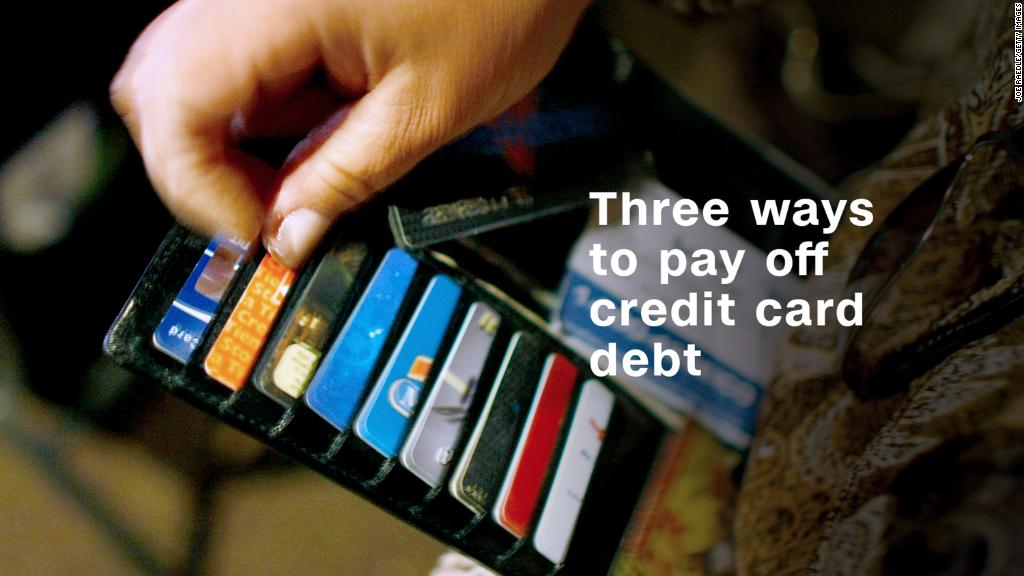
"I have student loan debt and have racked up about $6,000 in credit card debt over the last three years. I'm thinking of taking out a personal loan. Is this the most effective way to pay down debt?"
The ads by personal loan issuers can be compelling: "Would you rather pay 16% on your credit card or 6% on a loan?"
But does it make sense to take on debt to pay off debt?
Dave Ramsey, the radio host and author who is known for despising debt, has warned of the dangers of debt consolidation programs, but also the importance of dealing with the underlying reasons for your debt by destroying it.
Still, taking out a loan can be an effective way for some people to dispatch debt, says Angela Coleman, a certified financial planner with Unified Trust.
"It isn't a one-size fits all thing," says Coleman. "You want to find the best way to tackle your debt. You may want to secure a personal loan and get a more favorable interest rate, move into a better kind of debt and have the one payment to manage."
For many people it works. But, Coleman cautions: "There are things you need to be aware of when seeking a personal loan."
Why get a personal loan?
While the main pitch of loan companies is that you'll reduce your interest rate, the reality may be that there isn't a significant improvement in rate.
Of course the rate will vary depending on your credit and the length of the loan, but in the end the benefit to your credit may be an even bigger draw. Personal loans are considered installment debt, as opposed to the revolving debt on your credit card.
"The interest you pay on the personal loan isn't going to be that much more favorable than on your credit card, but because it is an installment loan, it is viewed more favorably with regard to your credit," says Coleman.
And you can benefit from streamlining your bills, too.
"Depending on the person's situation they could view this as a debt consolidation," says Coleman. "If they got a large enough loan that they could pay off outside debt, then they'd pay just one bill to the loan each month."
Don't go with the first loan you find
There are plenty of things to be wary of with personal loans.
"There are a lot of lenders who will make credit available very easily," says Coleman, "but there is a high cost to that including a higher interest rate or less favorable terms on the loan."
You can get a loan from a traditional bank, online lender, a peer-to-peer lender or a credit union. Coleman recommends looking into the offerings of credit unions.
"Credit unions usually have interest rates that are more favorable to their members," Coleman says. Credit unions can only charge up to 18% interest while other lenders may charge much more.
Make sure your interest rate goes down
One main goal of a personal loan is to reduce the cost of carrying debt. It won't make any sense if you walk away with a higher interest rate than your credit cards. A lower interest rate is possible, especially if you have kept your credit in check.
"If you have good credit going into securing a personal loan," says Coleman, "the interest rate is likely to be favorable."
You'll also want to compare the life of the loan. Some lenders may offer a 3, 5 or 7 year loan with interest rates that go up for longer time lines. You'll need to calculate how much interest you'll pay on the life of a loan.
Some lenders have additional terms to their offers like only lending to borrowers with excellent credit or charging more if you don't enroll in auto-pay.
After you get the loan, your work has just begun
While managing your monthly debt payments may be simpler with a personal loan, managing your new debt takes some work.
Not only do you need to pay off your new loan, you'll want to maintain your credit while avoiding seeing a credit card with a zero balance as an invitation to spend.
After you pay off your credit card, don't close that card, says Coleman, because that will have an adverse impact on your credit.
"But you don't want to view that credit card as an additional source of funding that you get yourself into more trouble with," she said. "That's the key. You don't want to use the card. But you don't want to close it, either. Maybe just cut it up."
